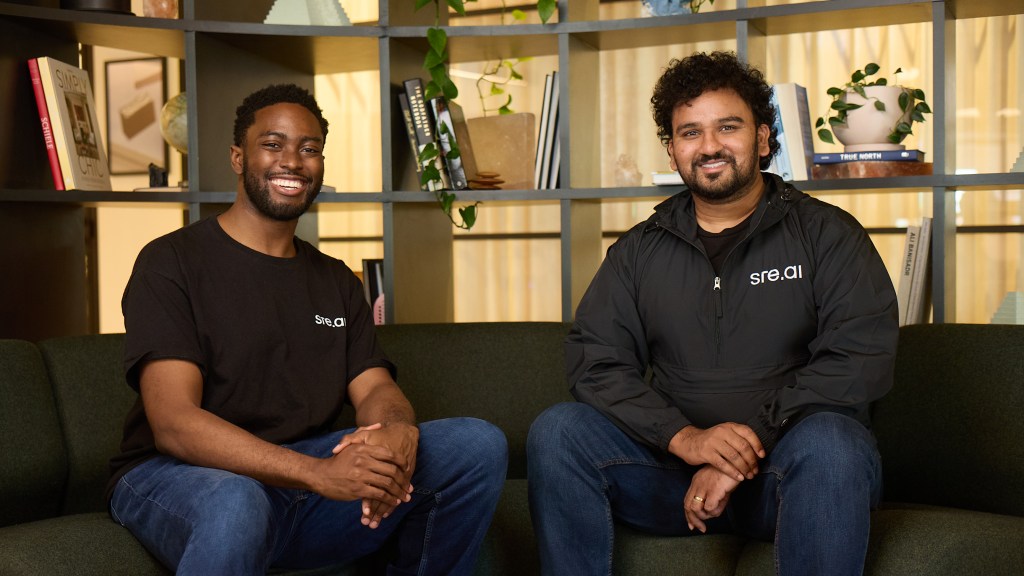The New Enterprise Software Playbook: Lessons From Zeck and G2
Insights from our event with Edward Norton and Godard Abel.
In an era where AI is reshaping entire industries, some of the most fundamental business processes remain stubbornly analog. Board meetings still run on 90-page PDFs distributed 48 hours before meetings. Enterprise software buying decisions still hinge on six-figure analyst contracts. For most companies, these outdated processes represent massive time, money, and productivity costs.
At a recent Salesforce Ventures event, Edward Norton, co-founder of Zeck, and Godard Abel, co-founder and CEO of G2, discussed how their companies are transforming these legacy systems. Their insights reveal a key consideration for founders building enterprise software in 2025: targeted AI implementation, rooted in deep understanding of human workflows, creates lasting value.
Here are five takeaways from our conversation with Edward and Godard:
1. Find Pain Points That Technology Has Left Behind
When Zeck co-founder Robert Wolfe had to leave a family vacation early to attend a board meeting, it crystallized a problem hiding in plain sight: board governance hasn’t fundamentally changed in decades.
“Nine out of ten organizations I’m involved with are still sending me a 90-page PDF forty-eight hours before the meeting that I’m supposed to pinch-zoom on my phone in the airport terminal,” Norton explained.
Meanwhile, G2 discovered that while consumers could easily find reviews for $100 hotel rooms, companies struggled to access honest feedback about million-dollar software investments.
Both founders saw an opportunity in these pain points. Zeck has achieved an 80% reduction in board prep time, while G2 has expanded to over 2,000 software categories, with a 40% increase in AI software listings just last year.
Key Takeaway: The biggest opportunities in enterprise software can often be found by investigating and updating legacy processes so rote that people don’t question them.
2. Forge Trust Through Transparency
Zeck and G2 prove that modernizing legacy processes requires more than just digitization — it demands reimagining trust dynamics. “Even though board governance sounds very esoteric and boring,” Norton explained, “organizations are communities of people. When that relationship is going well, it’s an incredibly positive human experience. When it’s going badly, it’s a real drag on people’s quality of life at work.”
Zeck builds trust through reciprocal visibility: management teams can see how board members engage with materials while maintaining strict data privacy between companies.
G2 approaches trust through verification, authenticating reviewers through LinkedIn, and gathering context about their roles and experience. For software buyers, knowing whether a review comes from a fellow CEO or developer adds crucial credibility.
Key Takeaway: In enterprise software, transparency builds trust, but only when paired with rigorous privacy controls.
3. Deploy AI Strategically
Rather than attempting to revolutionize entire workflows at once, Zeck and G2 focus AI on specific pain points where impact is immediately measurable.
Zeck’s AI helps generate first drafts of board materials, learning from each company’s unique content to improve over time — and never cross-pollinating proprietary data when doing so.
G2 has added an AI-powered software buying advisor named Monty, built on proprietary data from millions of verified reviews. In both cases, AI serves as an enhancer of human judgment rather than a replacement.
Key Takeaway: Successful AI implementation starts with eliminating tedious work, not reinventing entire workflows.
4. Choose Your Growth Path Carefully
“Being an entrepreneur is a lot like being an actor when you’re starting out — you’ll take whatever roles you can get,” Norton explained. But he warned against the common venture-backed trap: rapid capital deployment that pushes companies toward unsustainable growth. “Many entrepreneurs don’t realize that the VC investment thesis isn’t built around most investments succeeding — it’s built around most investments failing.”
Abel agreed, drawing from his experience across three companies — including Steelbrick, which Salesforce acquired. “First-time entrepreneurs often ask me how to choose which VC, but I tell them they probably don’t need to worry about that,” he said. “Most VCs only invest in one out of 1,000 deals. As a first-time entrepreneur, while you want good capital, you simply can’t be that selective.”
Key Takeaway: Choose investors based on their operating experience and ability to support sustainable growth, while recognizing you won’t always have many options to choose from.
5. Set Rules of Engagement Early
Norton emphasized the importance of establishing clear relationship dynamics with investors from the start. “When investors put in capital or foundations make donations, they’ll naturally want to monitor and protect their investment. But leaders of organizations must insist on reciprocal obligation from day one. Having capital doesn’t just give you the right to monitor — you must commit to being contributive.”
Both founders stressed the value of working with partners who fundamentally understand the business. “Board meetings should be — maybe ‘fun’ is the wrong word — but enjoyable,” Norton noted. “With Salesforce Ventures specifically, I feel incredibly fortunate. They’ve consistently been such a supportive investor.”
Key Takeaway: Set clear expectations with investors about mutual contribution, not just oversight.
Looking Ahead
The success of Zeck and G2 demonstrates that winning in enterprise software requires a deep understanding of workflows and a commitment to enhancing rather than disrupting them.
“Change happens when people get sick enough of something, and when an obviously better solution is put in front of them,” Norton reflected. By focusing on the human experience first and technology second, both companies offer a compelling model for the future of enterprise software — one that uses AI not just to automate, but to fundamentally improve how people work together.
_
Salesforce Ventures has a full schedule of 2025 events for founders and entrepreneurs to meet, network, and share knowledge. To learn more, sign up for our newsletter.











